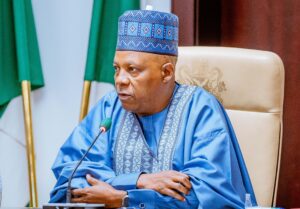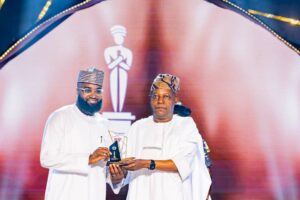Dantata foods, BUK to promote Carbon trading through regenerative Agriculture – Official
The Centre for Dryland Agriculture (CDA), Bayero University Kano (BUK), and the Dantata Foods and Allied Products Company Limited (DFAP) are to collaborate on promoting the generation of carbon among smallholder farmers in Nigeria.
The Spokesperson for the company, Mr Sanusi Bature,who disclosed this in a statement signed and issued to journalists on Saturday, in Kano, said that this would be achieved through Regenerative Agriculture, a new Agro-forestry approach for carbon trading.
According to him, the collaboration aimed to create a platform for the enrollment of small holder farmers who adopt organic food production, as soil regenerators reach Nigerian Markets.
The Director of the CDA, Prof. Jibrin Muhammad, while declaring open a public lecture on regenerative agriculture at BUK main campus, described agricultural innovation as a critical aspect of the sector through which industry players can perform strategic roles in economic diversification.
The event, entitled Industry Lecture Series and the first of its kind was organized to deliberate on the topic RegenAg and Carbon Trading: New Frontiers for Nigerian Agribusiness space was anchored.”
Bature said the lecture was organised by a British Agronomist Mr. Jason Hayward-Jones, who is also the Managing Director of RegenFARM Limited, a UK based Agric Technology firm.
He explained that RegentFARM was working with Dantata Foods, through a joint venture agreement in Nigeria tagged Dantata RegenAg Limited.
Similarly, the CDA and Dantata Foods signed a Memorandum of Understanding in June 2020, with a view to supporting smallholder farmers with knowledge and inputs from modern agricultural research and innovations.
“While deliberating on the topic, Jason Hayward described carbon trading as a market-based system designed to reduce the greenhouse gas emissions that contribute to global warming, especially carbon dioxide, by creating a financial incentive to do so.
“But how does this market work? And where does carbon offsetting fit into the picture? Despite being described as ‘a market’, there are in fact multiple markets for carbon trading.
“Carbon credits that are bought and sold in one market might not be valid in another,” he explained.
He confirmed that, “the partnership is creating a platform to enroll thousands of smallholder farmers, who will pay a premium, under which these participants may receive an initial allocation of carbon credits free of charge or enter into an auction to buy them.
“Businesses that subsequently reduce their emissions can sell their excess carbon credits to other participants, whose emissions have increased, thereby commoditizing carbon and creating a market for it.
“Jason also stated that Dantata RegenAg Limited was working with farmers in Nigeria to change their production patterns, to use regenerative agricultural methods that promote the sequestering of carbon into the soil, which can be sold as carbon credits on national and international markets.
“The value of carbon credits is increasing quickly and this complementary revenue stream will soon become a major component of farmers’ annual revenues, as well as making the farms more resilient to climate change.”
In his goodwill message, the Chairman/CEO DFAP, Alhaji Tajuddeen Dantata informed the audience that regenerative agriculture will provide solutions to various challenges of climate change and environmental degradation.
Represented by his Chief of Staff, Abdullahi Mahmoud, Dantata said it would also include soil erosion and carbon emissions as well as help farmers to produce organic foods for healthy consumption that can earn them a higher premium from buyers around the globe.
“We have recently developed a catalyst for soil regeneration, which acts as a farm supplement that supports farmlands to regenerate swiftly and cultivate crops without the use of fertilizer and other chemicals.”
“Dantata Soil Regenerator (Sinadarin Farfado da Kasar Noma) will soon be in the market to complement the overarching goal of implementing regenerative agriculture in Nigeria,” said Dantata.




